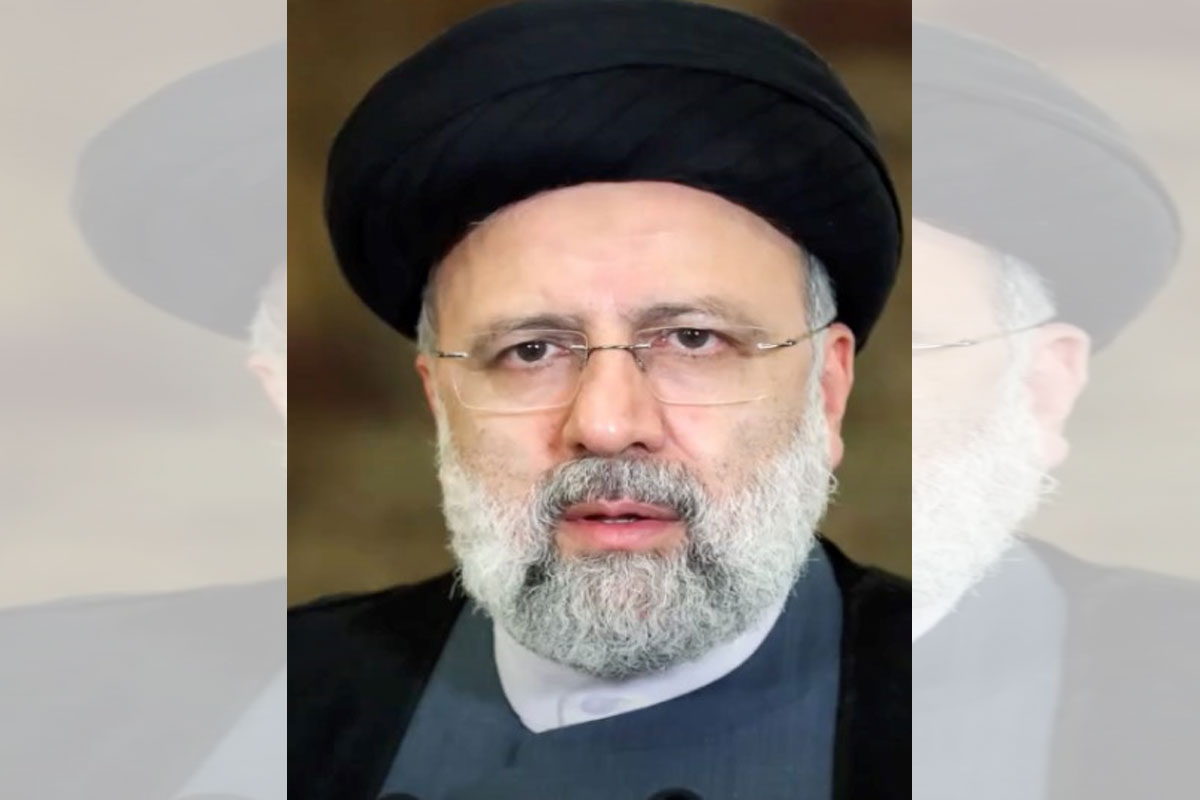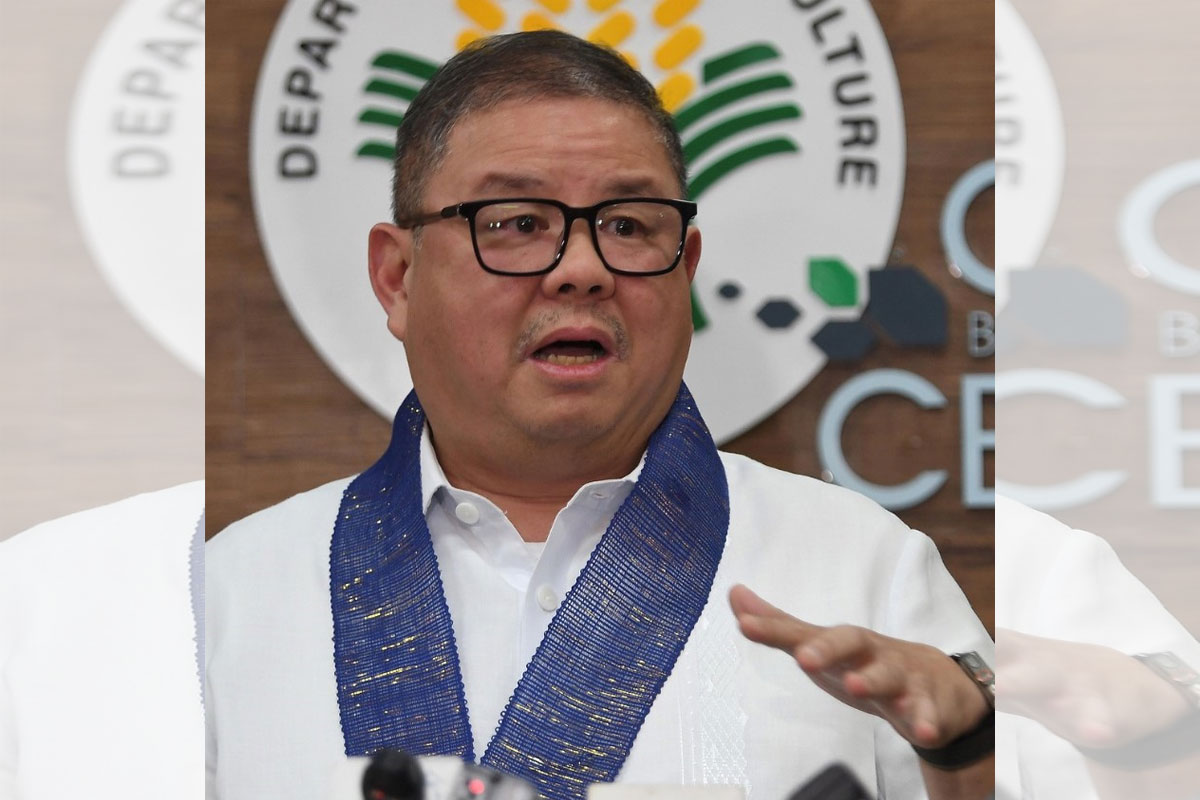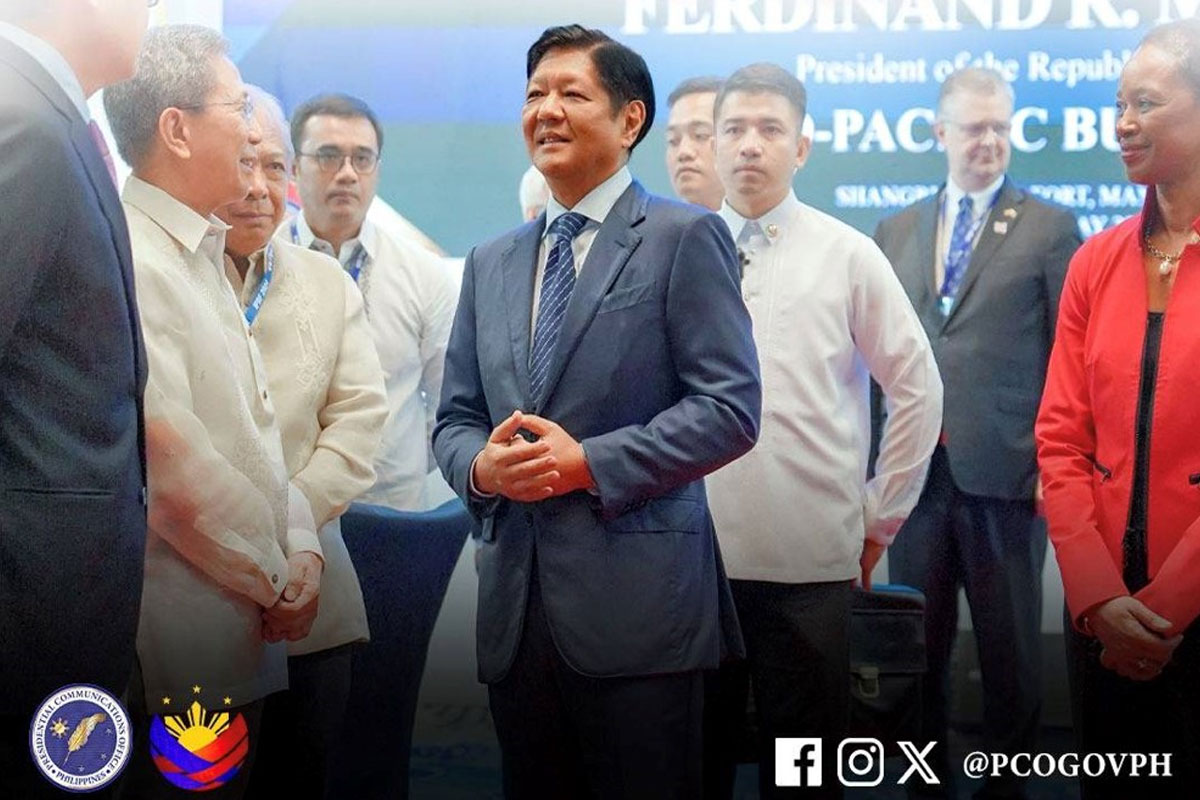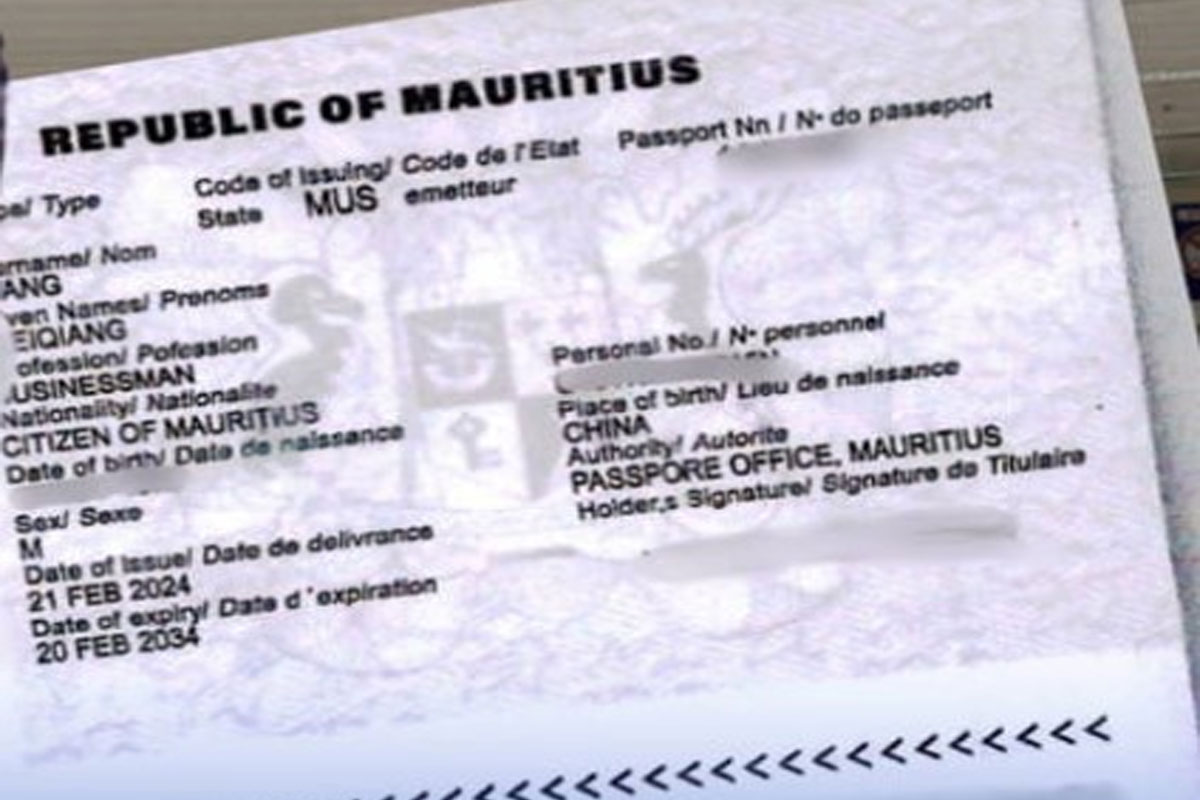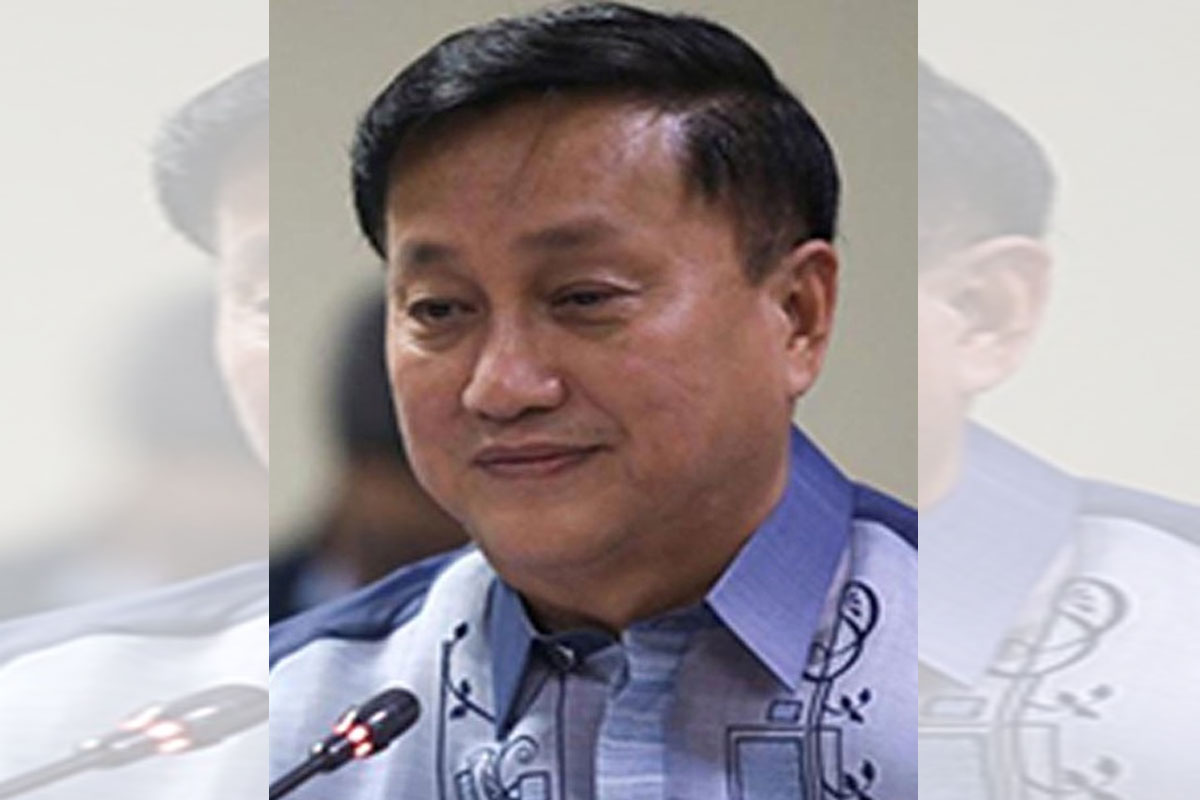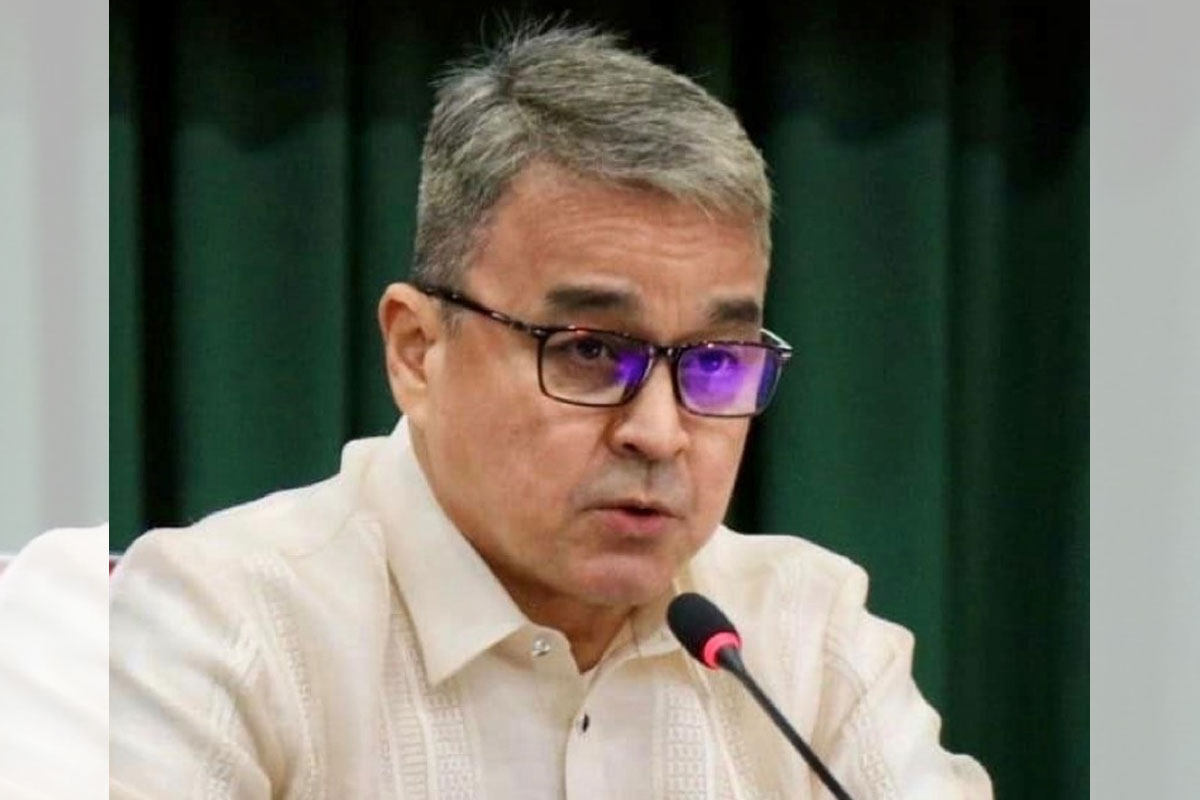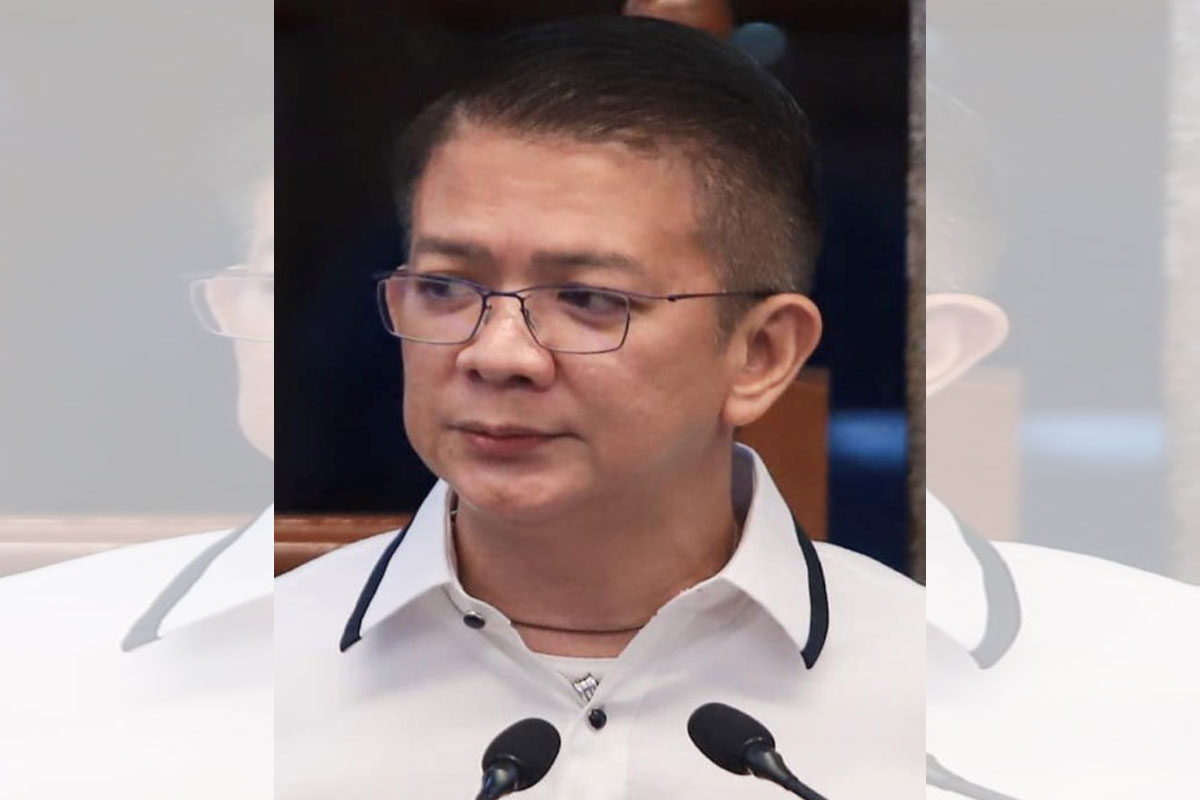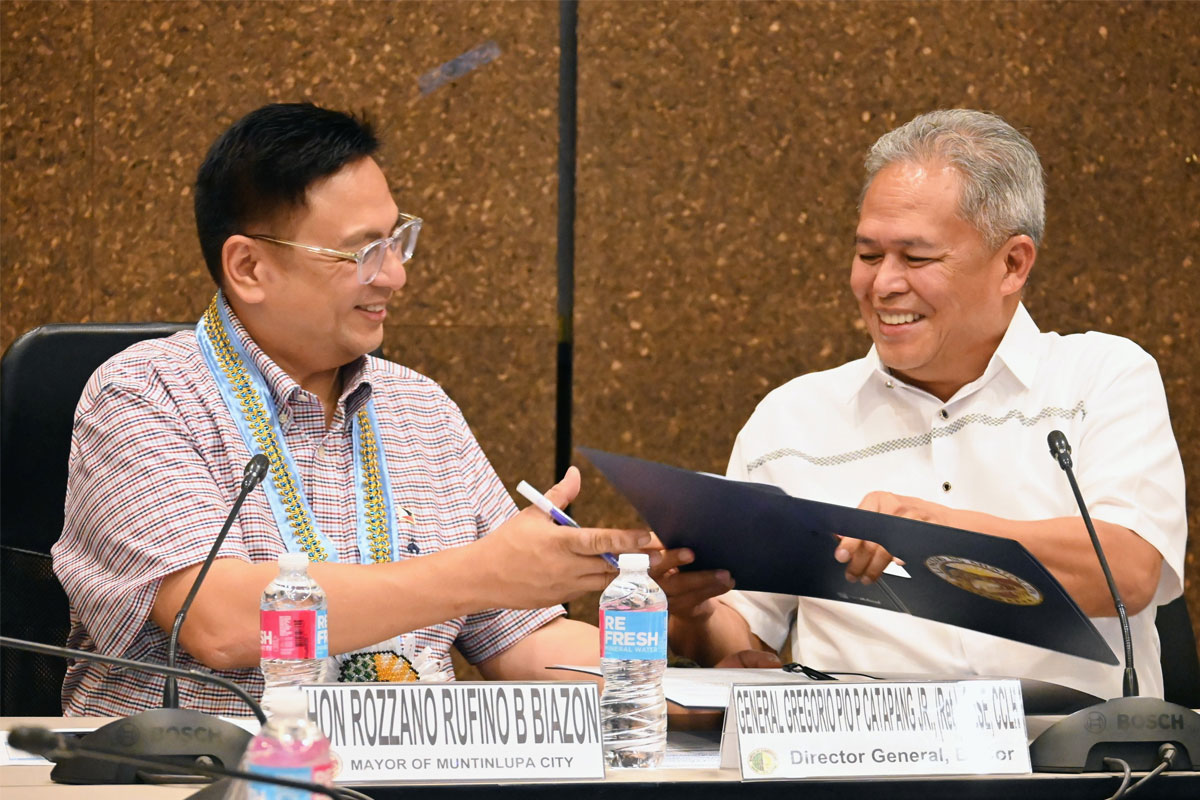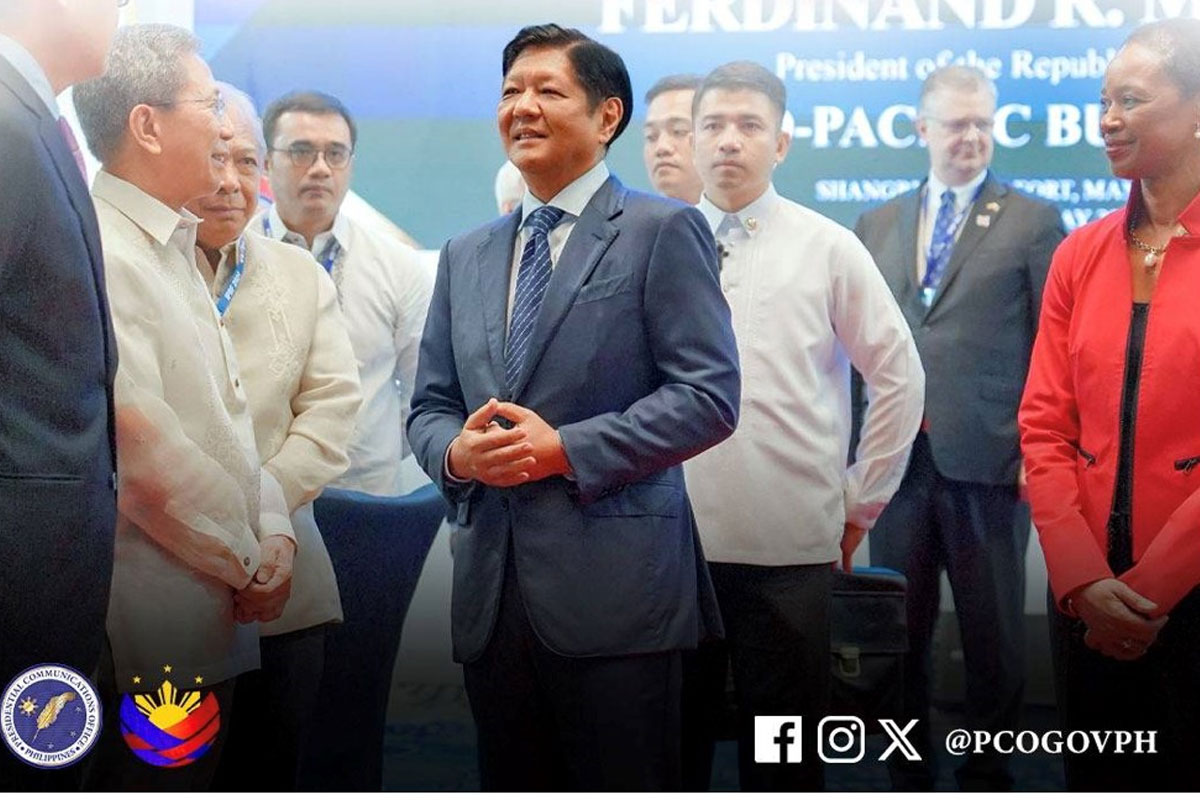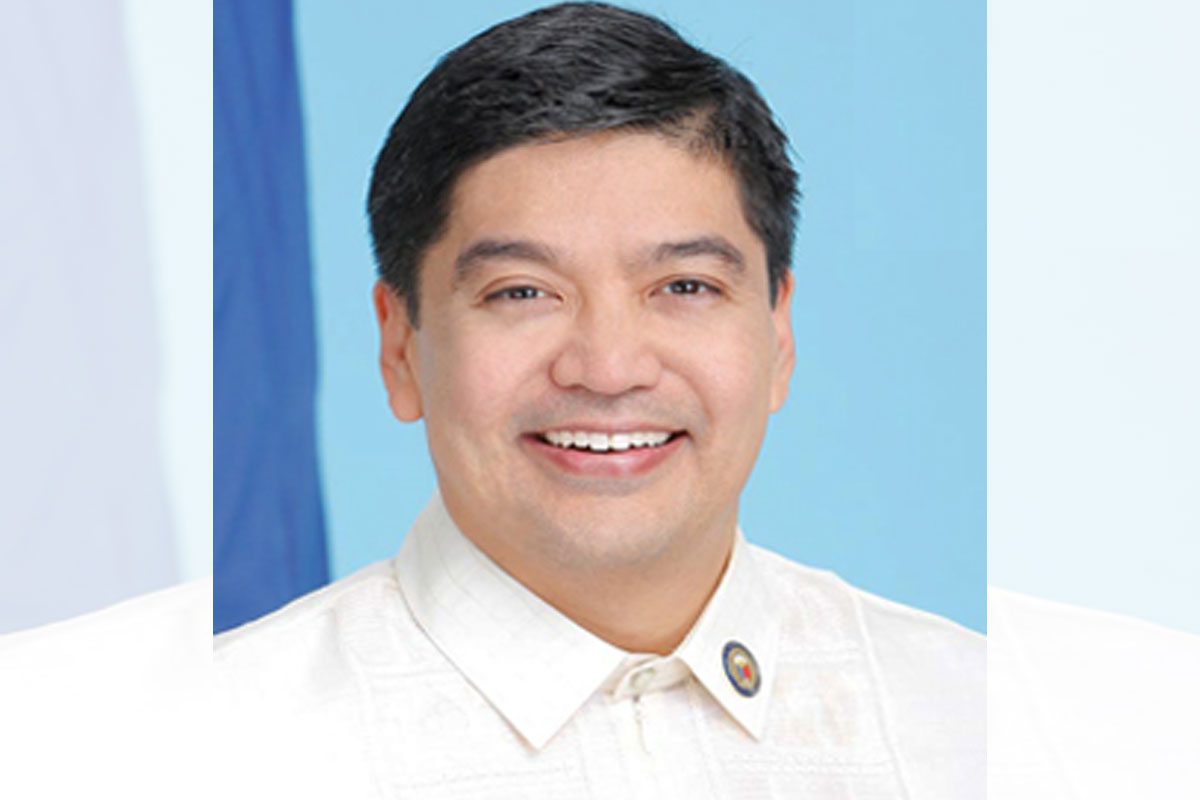
LRay gives PBBM ‘above par’ rating
In 1st year as prexy
CAMARINES Sur Representative LRay Villafuerte has cited President Ferdinand “Bongbong” R. Marcos Jr. (PBBM) for his “above-par” performance in his first year in office, having made “notable breakthroughs” in his uppermost goal to deliver jobs and better lives to Filipinos as well as attract more investments and put the economy back on its pre-pandemic path of high and inclusive growth.
Villafuerte, who is President of the National Unity Party (NUP), the “biggest power bloc” in the House of Representatives next to the ruling Lakas-CMD, said: “President Marcos has performed above par as Chief Executive, with his first year in office distinguished by notable breakthroughs in his overriding promise of more jobs and better lives for our people via an economy that is not only strong and resilient but also inclusive and sustainable.”
“It has been a short learning curve for Mr. Marcos,” said Villafuerte, “as his Administration has managed to accomplish better-than-expected initial results in the President’s 2022 ‘Bangon Bayan Muli’ campaign pledge to uplift the lives of all Filipinos. The rosy indicators this early on the watch of Mr. Marcos underscores that while his government needs to do a lot more over the next five years to fully realize its social and economic transformation agenda, it is, for sure, on track toward achieving the President’s vision for a prosperous, inclusive and resilient Philippines.”
As the President marks this week his first 12 months at Malacañan Palace, his administration has “reported a higher employment rate; generated local and foreign direct investments (FDIs) and pushed business-friendlier reforms that create even more jobs and restored the economy to its pre-pandemic high-and-inclusive-growth trajectory; accelerated programs to attack poverty and provide economic relief to disadvantaged sectors such as the jobless, low-income families, farmers and the homeless; and shepherded our people to the digital world and the post-pandemic ‘new normal,’” said Villafuerte.
“Mr. Marcos’ pro-poor and pro-growth initiatives have won broad and deep support from our people and the business community,” he said, “as shown by the latest opinion polls pointing to the President’s high approval ratings along with public optimism that the country and our economy will be better in the year ahead.”
Villafuerte said that as pointed out by Mr. Marcos himself in his recent response to his increased performance scores in the latest opinion polls, the people are aware of his administration’s initial efforts to energize the economy and show to the world that the Philippines is “back in business,” so he can improve their lives and create jobs for them.
“So, I think that naintindihan, naunawaan ng tao ‘yan. Kahit na hindi pa natin nabubuo, nakikita naman siguro na lahat ng kaya ng gawin ng pamahalaan ay ginagawa para maabot natin ‘yang ganyang klaseng sitwasyon: magandang buhay, maraming trabaho. At kahit na ‘yung mga naghihirap ay nakakatanggap na kahit papaano ng tulong sa pamahalaan,” said the President.
At the Vin d’Honneur celebration at the Palace during the 125th anniversary of Philippine Independence, Villafuerte said President Marcos had stressed the national resolve to rise from the economic scarring caused by COVID-19 and his presidential duty “to keep the house in order and steer the country to a high-growth path whose effect will be felt by each and every ordinary Juan dela Cruz.”
Villafuerte noted that alongside being the country’s “No. 1 salesman” pitching the Philippines as an investors’ haven in his 12 trips abroad, the President had, in sync with his Philippine Development Plan (PDP) for 2022-2028, “pushed initiatives in his government and in the Congress to further enhance the business climate and last year relaxed the stringent anti-Covid health protocols to demonstrate to the world that the Philippines is back in business and on the road to a robust and sustainable growth post-pandemic.”
He said the government’s job-generation thrusts have started to pay off as the Philippine Statistics Authority (PSA) reported that the jobless rate fell to 4.5% last April from the year ago’s 5.7%, while the employment rate went up to 95.5% or 48.06 million jobs from 94.3% or 45.63 million over the same comparative period, which means that about 3 million more jobs were generated.
Citing National Economic and Development Authority (NEDA) data, Villafuerte said that after anemic growth at the height of the pandemic, our gross domestic product (GDP) grew 6.4% in the first quarter of 2023 – within the government’s growth target of 6% to 7% for this year, and proof that the Philippines, under the Marcos presidency, is back on its pre-pandemic high-growth path despite the global and domestic financial headwinds.
At this first-quarter print of 6.4%, he said the Philippines – according to NEDA – posted the fastest growth rate among major emerging economies, faster than those recorded in Indonesia (5%), China (4.5%) and Vietnam (3.3%), as well as the then-projections for Malaysia (4.9%), India (4.6%) and Thailand (2.8%).
Because of its strong performance, Villafuerte said that Moody’s Analytics sees the Philippines becoming the region’s third fastest-growing economy next year with a GDP expansion of 5.4%, next to Vietnam with its projected and to China and India, which have identical forecasts of 5.6% growth.
He mentioned, too, NEDA’s report that the gross fixed capital formation or investment rose 10.4% year-on-year, reflecting a strong public construction performance resulting mainly from the Marcos administration’s continuation of the then-Duterte administration’s “Build Build Build (BBB)” initiative with the incumbent President’s own infrastructure modernization program “Build Better More” or BBM.
Amid the rising costs of food and energy, which affects ordinary Filipinos the most, Villafuerte said the President had created the Inter-Agency Committee on Inflation and Market Outlook to address inflation and poverty reduction and thereby ensure that “the envisioned social and economic transformation of all Filipinos does not get waylaid on the road back to high and inclusive growth.”
Villafuerte said there has been a steady slowdown this year in the pace of commodity price upswings, with food inflation declining from 9.5% in March to 8% in April this year, for example. As a result, overall inflation fell steadily from 8.6% in February to 6.1% in May.
Fitch Ratings’ affirmation of the Philippines’ “BBB” investment-grade and upgrade of its credit outlook from the previous “negative” to “stable” is a vote of confidence in the development agenda of the Marcos administration to achieve a resilient economy, create jobs and deliver better living standards for the people, Villafuerte said.
He said that easing inflationary pressures, along with other positive metrics such as declining debt and growing fiscal consolidation, had prompted Fitch Ratings to issue its stable credit outlook for the Philippines.
The economy’s reopening toward greater normalcy following last year’s easing by the President of anti-Covid health protocols has lifted various sectors, particularly the tourism industry, which Mr. Marcos himself said had the potential for becoming a major growth driver in creating more jobs and livelihood opportunities.
According to the Department of Tourism (DOT), the Philippines recorded 2,002,304 visitors over the January-May 2023 period – higher than the 1.7-million target for 2022 – and earned P168.52 billion worth of inbound visitor receipts or almost 783% higher than the year-ago tourism revenues of P19.1 billion for the same quarter.
As of the end of 2022, he said the recovery of this industry led to 11,989 DOT-accredited enterprises and generated an estimated 5.23 million tourism-related jobs combined.
“President Marcos’ lifting in last year’s fourth quarter of the masking mandate and easing of health protocols for inbound travel sent a loud message to the world that we have marched on from the almost three-year pandemic and that we have at last opened wide our doors to tourists and investors alike as a way to speed up our economy’s return to its pre-pandemic high upward trajectory,” said Villafuerte, who last year appealed to Malacañan to relax such health requirements.
Apparently, as a result of the economy’ reopening, he said that the confidence index (CI) for companies soared to 40.8% in the second quarter from 34% previously, with corporations expecting increased production and sales because of the post-pandemic recovery, reopening of the economy and easing inflation.
Amid this bullish outlook, companies have started ramping up their operations, with the number of businesses in the industry sector planning to expand in the coming quarter rising to 19.8%, according to the Business Expectations Survey (BES) survey by the Bangko Sentral ng Pilipinas-Department of Economic Research (BSP-DER).
Prospects for hiring more workers in the next quarter are more favorable, he said, as the same BES poll showed a jump in the employment outlook index to 17.9% from the previous 13.4%.
Mr. Marcos’ approval rating in the second-quarter survey by Publicus Asia rose to 62% from 60% in the first quarter, and 68% of the respondents said the Philippines was on the right track and expected their financial prospects to improve in the next quarter.
In Pulse Asia’s March survey, 78% approved of President Marcos’ job performance, and 80% had “big trust” in the Chief Executive.
In the separate survey by the OCTA Research Group done during the first quarter, 54% felt their quality of life would improve over the next six months, from 51% in the previous quarterly poll, and 50%, from the earlier 46%, believed the economy would get better in the next semester.
Public satisfaction with the President’s performance is likely to go up further, he said, with the planned implementation of more pro-poor projects, including the pilot testing of the food stamp or “Walang Gutom” program for one million poor families, as part of his government’s fight against poverty, hunger and malnutrition.
The Marcos government wants to raise infrastructure spending to 5.3% of gross domestic product (GDP), which, said Villafuerte, said is the best way to stimulate economic activity and create jobs as “infrastructure investments have the highest multiplier effect on the economy.”
In the January-April months, for example, government spending went up 15% to P373.9 billion from the year ago’s P343 billion, and in April alone, spending on infrastructure rose by a third to P87 billion in April from P63.8 billion in the same month in 2022.
True to his word on this BBM infra program, he said Mr. Marcos had directed the Departments of Public Works and Highways (DPWH) and on Transportation (DOTr) to fast-track their big-ticket projects that will “promote inclusive growth, induce high-quality job creation and improve living standards,” in line with his government’s 8-Point Socioeconomic Agenda and PDP 2023-2028.
As part of his pro-poor initiatives, he said the President also launched the “Pambansang Pabahay Para sa Pilipino” (4PH) Program of the Department of Human Settlements and Urban Development (DHSUD) on the construction of high-rise multipurpose condominiums for homeless Filipinos, in partnership with local government units (LGUs).
Villafuerte said the President kicked off this ambitious project in CamSur last March, breaking ground for 12 residential towers, each rising 25 floors high and designed to house 10,000 families or 50,000 people.
This socialized housing project, which the DHSUD is undertaking in tandem with the CamSur provincial government, will generate local economic activity worth P6 billion to P8 billion and create thousands of jobs during the construction phase, he said.
He said the President has also ordered the establishment of more “Kadiwa ng Pangulo” outlets nationwide to sell cheaper rice and other foodstuff as a way to help low-income families cope with commodity price spikes.
During the President’s visit to CamSur to launch 4PH, he said Mr. Marcos also opened a Kadiwa outlet in the provincial capital of Pili, which is the first such Kadiwa store in the Bicol region.
To boost palay output to raise farmers’ incomes and pull down the retail cost of rice for consumers, Villafuerte said the President approved this month the Masagana Rice Industry Development Program (MRIRD) with the goal of achieving 97.4% self-sufficiency in this staple and to 100% by 2028.
Back when President Marcos opted last year to assume the position of Agriculture Secretary in a concurrent capacity, Villafuerte already proposed to the Department of Agriculture (DA) to revive two successful projects of the late President Marcos Sr., which are the “Masagana 99” rice program, with an eye to raising harvests to 129 cavans or 50-kilo bags per hectare; and the Food Terminal Inc. (FTI) hub, with the goal of putting up FTIs or food processing terminals in all regions nationwide.
To lead Filipinos to the digital world, he said the President had pushed the country’s digital transformation by pushing electronic or e-Governance and launching this June the eGov PH Super App, so the government can facilitate the rapid development of the country’s interconnectivity infrastructure and digitalization.
The former CamSur governor said the President is spot on in putting a premium on digitalizing the bureaucracy and LGUs, as Mr. Marcos himself had said during the launch of the eGov Super App: “The whole idea of e-governance is something that we need to do because we have fallen behind,” even as 95% of Filipinos’ daily activities such as shopping, banking and government payments are now done online.
“Digitalization will simplify government transactions and, in the end, reduce corruption and other abuses,” Villafuerte said.
And to protect Filipinos against Internet-based fraud, he said the President had signed the law (Republic Act or RA 11394) on the mandatory registration of Subscriber Identity Modules (SIMs) to safeguard our people against cybercrimes.
He said the President is also set to sign soon the law creating the Maharlika Investment Fund (MIF), which, in having an authorized capital stock of P500 billion, will mean a new revenue stream for additional public spending on infrastructure, agricultural modernization and food security, climate action, energy development and other priority programs of the Marcos administration.
“Seed money” for the MIF will come from the investible funds of the Land Bank of the Philippines (LandBank), P50 billion, and Development Bank of the Philippines (DBP), P25 billion; declared dividends of the Bangko Sentral ng Pilipinas (BSP), P50 billion; and an undetermined amount from the government share of Philippine Amusement and Gaming Corp. (PAGCOR) gaming earnings, and sales proceeds from the privatization of state assets, among others.
A co-author of the SIM Registration Law and the Maharlika bill, Villafuerte said the NUP is committed to keeping its alliance with the ruling Lakas-CMD led by Speaker Martin Romualdez and to back the President’s legislative agenda till the 19th Congress end in 2025, in order for the Legislature to pass the Marcos administration’s priority bills supportive of its socioeconomic agenda or PDP 2023-2028.
Under Romualdez’s leadership, the House had passed during the First Regular Session of the 19th Congress a total of 33 of the 42 priority bills that the President had drawn up with the Legislative Executive Development Advisory Council (LEDAC).


